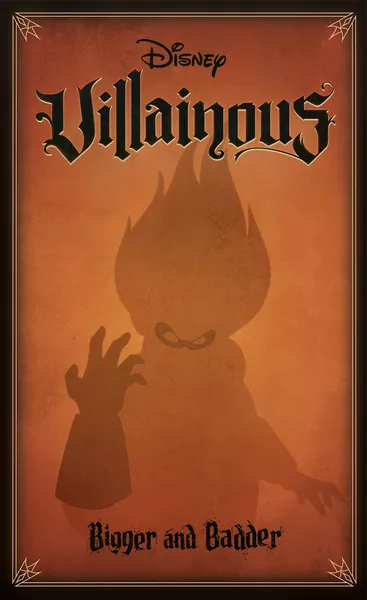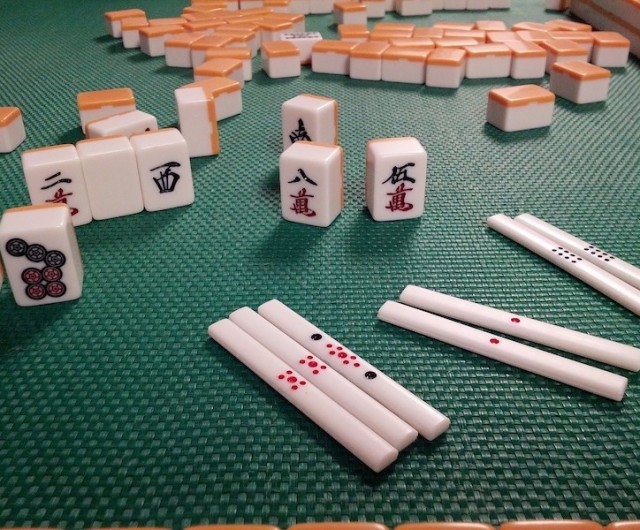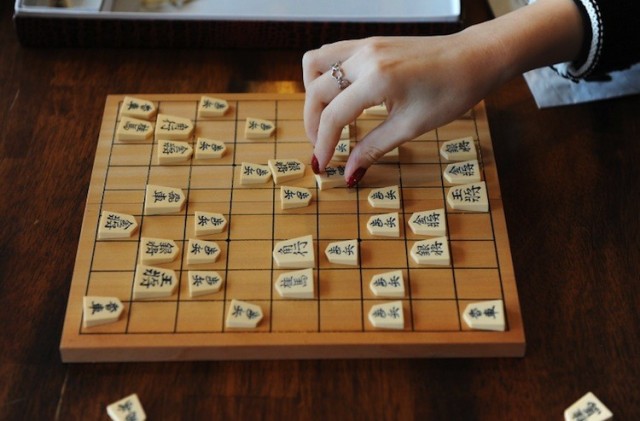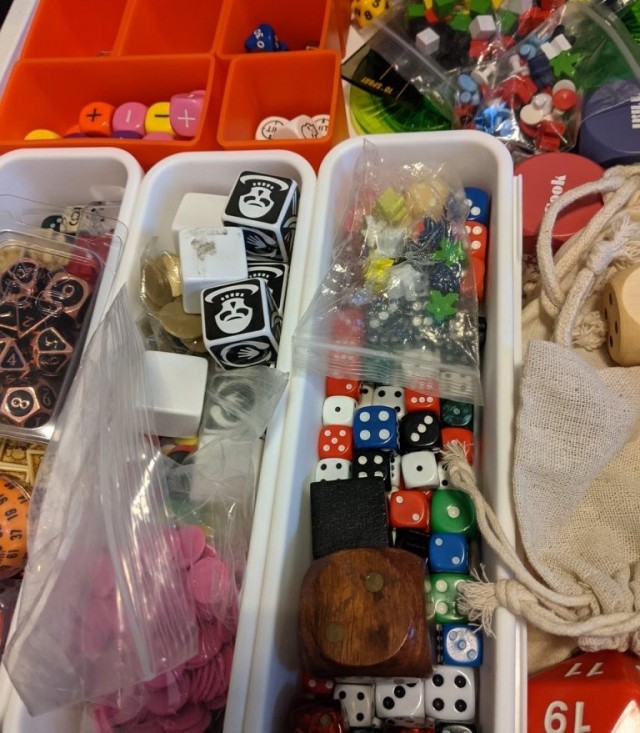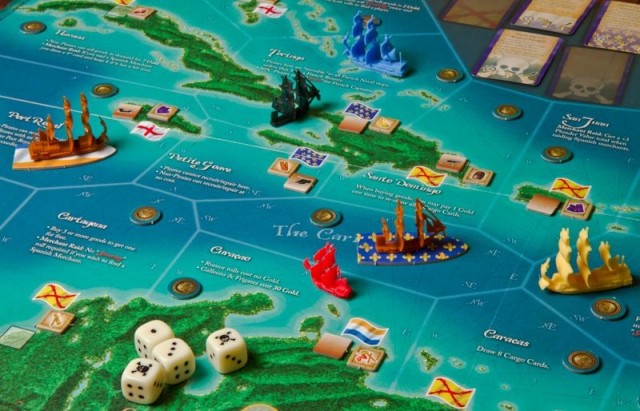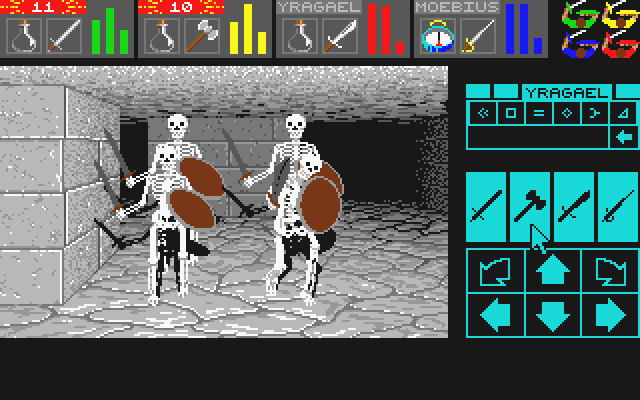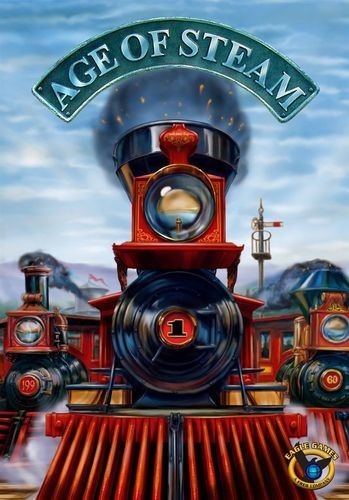 Let me paint you a picture: one which will likely be horribly familiar for most of you. You’re playing a game - a long game, but a good one. The first two or three hours were utterly fantastic and had everyone buzzing, focused on the table, totally immersed in the experience. The hour after that it became pretty clear who was going to win so, even though the mechanics of the game allowed for someone to come from behind to take the win, everyone eased off a little bit. But it went on: for one reason or another, the lead player just could quite make the leap to the finish line and another hour dragged by before it ended, an hour where everyone was pretty much bored and fed up because they felt the game was a foregone conclusion. The group sits back and, in post game discussion, they all agree the game actually ended a good hour, maybe even two, before the victory conditions were achieved. Which begs the question of why, if it was so clear cut, did everyone keep on playing once the game ceased to be fun?
Let me paint you a picture: one which will likely be horribly familiar for most of you. You’re playing a game - a long game, but a good one. The first two or three hours were utterly fantastic and had everyone buzzing, focused on the table, totally immersed in the experience. The hour after that it became pretty clear who was going to win so, even though the mechanics of the game allowed for someone to come from behind to take the win, everyone eased off a little bit. But it went on: for one reason or another, the lead player just could quite make the leap to the finish line and another hour dragged by before it ended, an hour where everyone was pretty much bored and fed up because they felt the game was a foregone conclusion. The group sits back and, in post game discussion, they all agree the game actually ended a good hour, maybe even two, before the victory conditions were achieved. Which begs the question of why, if it was so clear cut, did everyone keep on playing once the game ceased to be fun?
I’ve had this experience many times over the years. But what bought the whole thing sharply into focus was playing solo games of Arkham Horror. For those unfamiliar, the usual way to win in AH (if you discount the distinctly un-Lovecraftian boss battles, as I do) is by sealing six gates. There’s a card in the deck which, if not disposed of rapidly, can cause all the sealed gates on the board to unseal. This card is the bane of my AH playing existence: I seem to draw it out of the huge mythos deck in every game I play, and it’s probably directly responsible for more of my losses than any other circumstance in the game. If you draw that card when you’ve got a significant number of gate seals on the board and fail to deal with it then you’re in serious trouble. You’ll have to start your hard work all over again, and you almost certainly won’t manage to do it before the ancient one wakes up. But here’s the rub: the card doesn’t actually end the game. It makes the winning conditions nigh-on impossible to achieve but the game goes on and if you choose to carry on playing, you’re likely letting yourself in for a very long play experience with very, very little hope of victory. Very much, in fact, like the picture I drew in the opening paragraph.
It turns out that Arkham Horror is actually extremely good at setting up these sorts of scenarios. It has a mechanic called the Terror Track which measures how scared the townspeople are of the events happening around them and if it reaches ten then everyone leaves and the cap on the number of monsters on the board at once is removed. Playing after this has happened, unless you’re very close to winning, is an excercise in tedium because players spend most of their time working out through the automated rules for monster movement instead of making choices, interacting and having fun. But again, the ten doesn’t cause the game to end: indeed in some plays the track can hit ten way before the winning conditions come in sight. There are, amazingly other examples in the game.
At first I thought of these as problems, and sought to make up some house rules to overcome them. Game ends once the terror track reaches ten was an easy one. Game ends if all the gate seals burst. After all, if these things happened when playing solo that was my usual response. But it quickly became apparent that house rules were not the answer. What if the gate seals burst when you only had one finished? What if the terror track hit ten a couple of turns before you were likely to get the sixth seal and win? The answer - obviously - was to apply some common sense to the situation. But the problem is that when gamers meet in groups, common sense seems to go out of the window and everyone makes a collective decision to slavishly follow the rules to the letter and grind out the game well after it has become painful for all the players. Often it seems that this is entirely unconscious - no one even asks if it might be a wise idea to wind the game up now, and even if someone does (and that someone is usually me) there’s always one player who wants to keep on playing just in case and everyone else acquiesces out of politeness and the tedious ending takes its inevitable course, bringing boredom to everyone, even the gamer who asked for the extension in the first place.
The response of designers to this problem has been multifold: turn count limits, literal time limits, much looser victory conditions and so on and so forth. With some games this works. With others, such as the FFG edition of Warrior Knights it results in an odd problem where the game ends just as all the players feel like it’s getting interesting. Inevitably though these sorts of ending mechanics impose a serious limitation on what territory the game can explore: it’s very hard, for instance, to make a satisfying multiplayer conflict game with an artificial time limiting mechanism tacked on. And it seems to me that this is a great shame. I can think of a number of classic older games which have some sort of tedious ending problem and which are derided because of it that have the potential to be brilliant time after time if only the players involved could make common sense decisions about when to end the game. Take the original GW edition of Fury of Dracula for example: the victory conditions made it possible for a semi-stalemate to arise whereby a turtling Dracula player could never quite get all the vampires he needed to win, but the hunters could never pin down the position of the count (because he spent so much time at sea) and kill him. A sensible group might simply play for 2-3 hours until people were starting to get bored and then make a collective decision that Dracula had to kill 1 or 2 hunters in the next half hour to win, otherwise hunters win by default. The FFG edition devoted a considerable extra weight of rules to solving this problem: but it ought never to have been a problem in the first place. Talisman might have garnered a much better reputation amongst Eurogamers if their experiences had involved a group decision that the person currently on the crown of command had won by default because no other player was near him rather than a drawn out endgame with the crown-wearer slowly killing other players who had no realistic hope of reaching the inner circle before their demise.
So why does it seem to be so hard for us to make that decision about the proper end of a game? I can think of a whole host of reasons. The biggest one, I think, is that most games in which this problem arises hold out the hope of someone coming from behind to win. It therefore offends our competitive instincts as gamers to end the game early, not least because on the rare occasions where an unlikely win gets pulled out of the bag can be hugely exciting and memorable. But it comes down to common sense again: look at the board, asses the probability and ask yourself seriously whether the chance of that unusual win is big enough to stake the intervening tedium of play time on. Do it sensibly and you won’t actually miss out on those endings very many times. Following the rules to the letter is the “logical” thing to do and, let’s face it, game geeks have an unfortunate tendency to be overly logical, literal people. Making a collective common-sense decision is the mark of a group who are mature and socially comfortable with each other, and if you play in a game club the chances are you and your fellow gamers might not be socially comfortable with each other because your only bond is a collective desire to play games. Unfortunately I have no catch-all solutions to these obstacles: I can only hope that by pointing them out, gamers might be more aware of them in the future and have a greater drive to try and overcome them for the sake of the game.
This isn’t supposed to be a diatribe against longer games. There are a magical few games that, for me at least, seem capable of maintaining interest after many hours of play. Twilight Imperium 3 is one such game. Diplomacy is another. In fact the length of these games seems inextricably interwoven with the play experience: the epic play time helps lend an epic air to the games themselves. Play time only becomes a problem if it extends beyond the point where the majority of players are having fun, and with some games this can actually be a very short time indeed. Take one of my favourite filler games, Zilch (known, I believe, as Farkle in some parts of the states). It’s a short, simple push your luck dice game with a tiny but significant amount of decision making that requires nothing more than a few dice to play and is thus a great “play anywhere, anytime” game. But if you’re unlucky you can loose all your points and in the odd game this can happen to multiple players, knocking them out of the running. Or if you’re in the lead you might hit a bad patch and require many rolls to get past the official winning post. Either of these situations can sometimes result in boredom, especially if the players are intoxicated, and that in a game which takes no more than 15-20 minutes to play. The solution, of course, is to call a common-sense ending.
I want to conclude this article by offering two things for you to chew over. Firstly, if this sort of group decision making about calling an end to the game which makes everybody happy has the potential to stop games well before they become boring, is it really right to criticise such a game just because your experience didn’t end on such a pleasing compromise? Might it be worth you going back and pulling down that copy of Talisman, that box of Blood Royale, that set of Titan secure in the knowledge that you’d get to play it for exactly as long as it remained interesting to you, and no longer? Second, since we all seem to be such sticklers for following the rules, what might happen if designers and publishers actually encouraged you to make such decisions, perhaps with a few guidelines on assessing game state to help you, as part of the rule booklet? I’m sure you can guess how I’d answer those questions. How would you?

Matt is the founder of Fortress: Ameritrash. He is also a regular columnist for Board Game News.
 Games
Games How to resolve AdBlock issue?
How to resolve AdBlock issue? 
